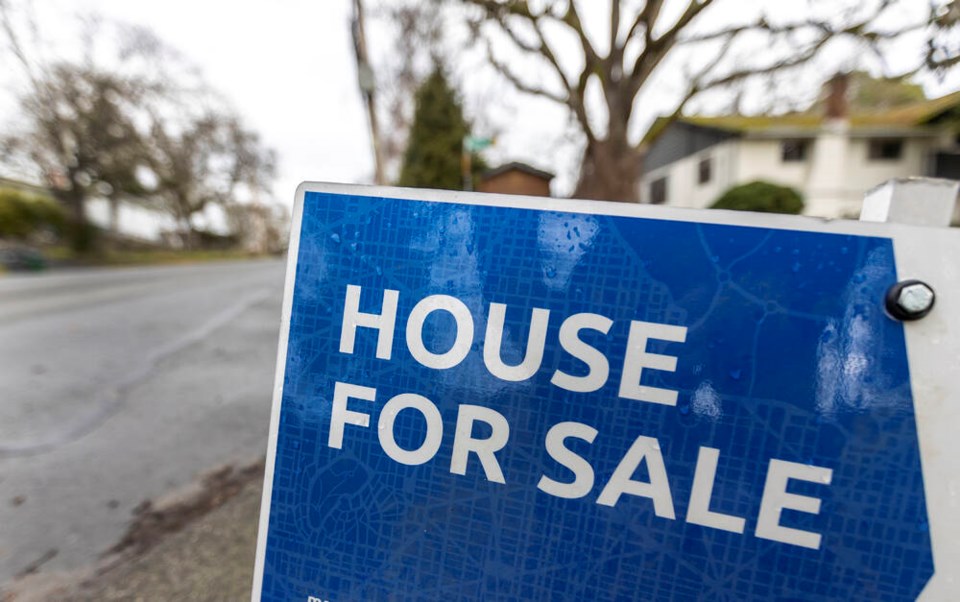Homeowners in B.C. should rest easy: the chance they will ever have their homes stolen out from under them is literally one in a million.
While there have been a flurry of media reports in recent weeks about title fraud in Greater Toronto, there is no indication homeowners in B.C. are vulnerable to having their homes fraudulently sold by someone else, according to real estate professionals.
“It’s such an exaggerated possibility,” said Mike Holmes, a lawyer and owner of Pemberton Holmes Real Estate.
Holmes said given the safeguards in place in this province — what he called a world-class land-title registry system and a number of gatekeepers keeping watch — it would take an incredible set of circumstances to pull it off.
“It was tried in Victoria last year,” he said. “It was stopped by the various gatekeepers that protect the system — the realtors, the banks, the lawyers and the land-title system.”
The numbers back him up. According to the the province’s Land Title and Survey Authority, in the past three years there have been three reported attempts at title fraud. Two are now before the courts, and the third was thwarted by identification safeguards.
The authority typically sees more than 800,000 real estate transactions in a year, but last year it dealt with over one million.
“I don’t want to say it’s a one-in-a-million thing, because there may be frauds out there that we’re not aware of, but we certainly haven’t seen a huge proliferation in fraud claims,” said Carlos MacDonald, director of land titles for the Land Title and Survey Authority.
In most instances of title fraud, the scam artists look for homes that are vacant or have absentee owners and have clear title, which means no mortgage or charges against the title. The fraudsters, who will often rent the property, may impersonate the owners using false identification, quickly list the property for sale and take an early, reasonable offer.
Holmes said in the Victoria case, real estate agents and lawyers thwarted the attempt when they went to verify the identification.
The fraudster “may have gotten to the first base of 20, [but] it was never going anywhere,” he said.
“We have an extremely good land-title system in British Columbia, and by and large the lawyers and notaries operating here are well trained in identifying people and to look for suspicious activity and to report it,” added Kate Roome, a Duncan-based notary public.
Roome said fraudsters tend to avoid properties that have any kind of charge against them, such as a line of credit or mortgage.
“When there is a lender on title already, it makes committing that fraud just that much more complicated,” she said.
When a fraud does happen, MacDonald said, it’s typically because there have been a series of mistakes. He notes one of the cases currently before the courts alleges some of the real estate professionals did not live up to the required standard of care.
Property owners being around and involved also tends to put off the scam artists, he said.
“Absentee owners are more vulnerable to all sorts of things. If you’re a landlord and you’re checking on your place on a regular basis, you’re less likely to end up with a marijuana grow-op in your house and you’re probably less likely to end up with this type of issue,” he said.
For homeowners concerned about title fraud, there are several things they can do — including buying title insurance, which will help recover legal fees if they do experience a fraud.
MacDonald said there are two assurance funds, one run by the province and the other by the Land Title and Survey Authority.
“If an innocent homeowner loses their home or loses an interest in their title as a result of either fraud or a mistake of the registrar or his staff, the assurance fund is there to compensate the victim,” he said.
The LTSA also offers Parcel Activity Notifier subscriptions, which provide alerts if any application is submitted against a title.
“It’s a very effective way of preventing land-title fraud,” he said.
Holmes said another old-school method is also effective — the duplicate certificate of title.
“It’s hardly ever used today, but still is available where a person takes a duplicate certificate of title and lodges it with a lawyer or a bank,” he said. “Every title has a duplicate that is normally just lodged with the land-title system, but an owner can apply to take out that duplicate certificate of title. The title cannot be touched until that duplicate certificate title is put back into the land-title system.”
The downside is that reinstating a lost duplicate is not a straightforward process.
Mortgage broker Scott Travelbea advises clients with clear titles to take out a secured line of credit on their homes.
“Once it’s set up, if they ever want to borrow funds, they’ve got access to them and they generally pay nothing for it,” he said. “And it creates that layer of security because to discharge the mortgage, the lawyer has to remove it from the title of the home.”
MacDonald said since the recent media reports, the LTSA has been fielding a lot of of calls about people concerned about fraud.
“For them it’s absolutely scary, but it is uncommon,” he said.



